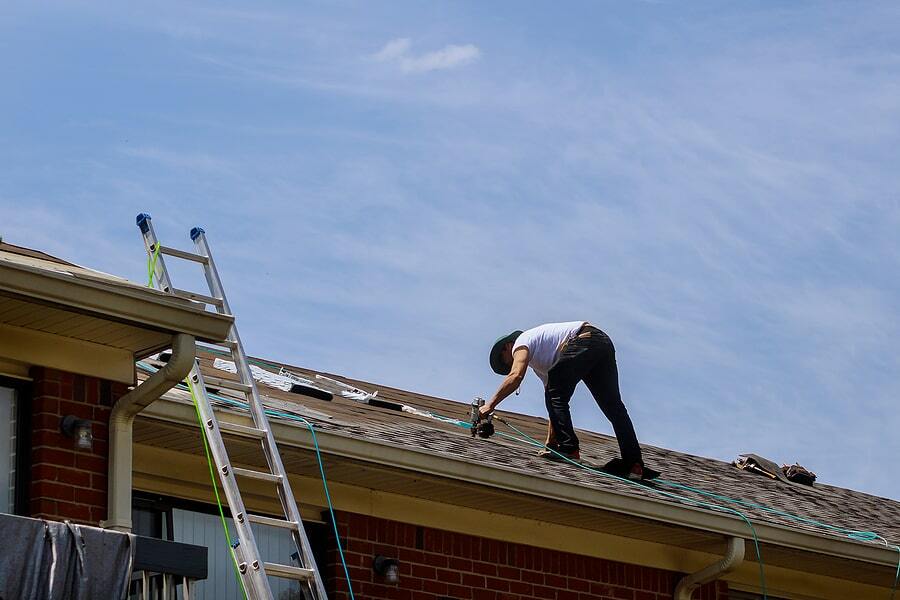
Important Things to Consider Before a Roof Replacement
1. What Look You Want
Before looking into the price of a new roof or what contractor to use, it is important to determine what style of roof you desire. There is the choice to go with a subdued look, or to stand out in your neighborhood. Another important factor is what color to go with for your roof, for which helpful tips can be found here.
2. Which Materials to Use

Since you likely haven’t had to replace your roof within the last 20 years, you may not be aware of all of the recent roofing advancements that have taken place. Now there are alternatives to the standard asphalt roof or clay tiles. Now, there are composite roofing materials offered in three main styles, Cedar Shake, Slate, or Spanish Tiles. Synthetic materials last much longer than traditional materials and also have 50-year warranties.
3. Cost Differences
While synthetic roof tiles tend to cost more than traditional materials upfront, the long-term maintenance costs are far cheaper. For example, wooden shake roofs require a lot of upkeep and shingle replacements, whereas composite shake roofs have the same look, while requiring ZERO upkeep. Composite materials also are more resistant to wind, fire, and hail, requiring less time and money for upkeep.
4. Layering vs. Stripping Old Material
If you only have a few spots on your roof that are damaged from hail or wind, layering is probably the right option. However, if your home has been exposed to major rain, hail, or ice, it is safer to strip the old material. While most places allow up to two layers of asphalt roofing, it is best to get the old material off so that the contractor can better inspect, and fix, the roof. If you are opting for a new material for your roof, the only option is to strip the old material before putting on a new roof. This is beneficial anyway because it allows any problem areas in the roof to be fixed before covering them up again.
5. Think Long Term
While you may want to go with the cheaper materials for your roof, long term it is better to invest in higher quality materials. Asphalt shingles fade over time and only last about 20 years. Clay tiles look nice, but break easily when there is bad weather. On the other hand, roof tiles made from synthetic materials are engineered to hold up against fire, wind, rain, hail, and heat. There is a price for these higher quality materials, but the cost evens out over time. Because the synthetic tiles last 50+ years, that is the equivalent of redoing an asphalt roof twice! So for the same long-term money, and better look, composite materials are the way to go if you find it in your budget.
6. Types of Warranties
Most standard roofs come with a 20-year warranty. However, more elite materials, such as composite and synthetic, tend to come with a 50-year warranty. Whether you are planning on living in your home past retirement, or even hoping for a good resale value, having a longer warranty pays off and makes up for the pricier materials.
7. DIY or Hire Out
While some people want to reroof their home themselves to save money, this is rarely the case. It is often best to find a certified contractor in your area who is licensed and experienced. If you are a weekend warrior, reroofing your home would be a large undertaking, and an expensive one at that. We recommend leaving this job to the professionals.
8. Choosing the Right Contractor
Having the right contractor is essential to having a positive experience. A good first step is to see what roofs you like in your neighborhood or surrounding areas and see if you can find out who did them. Another good stop is to check out a variety of online resources. Some of the most reliable to cross check are the Better Business Bureau, Angie’s List, Homefinder, and simply to check out reviews on Yelp and Google. Before hiring a contractor, be sure to make sure they have the insurance and accreditations that they need. When they finish the job, hold them accountable for cleaning up any fallen nails or debris that may be left in your yard.



